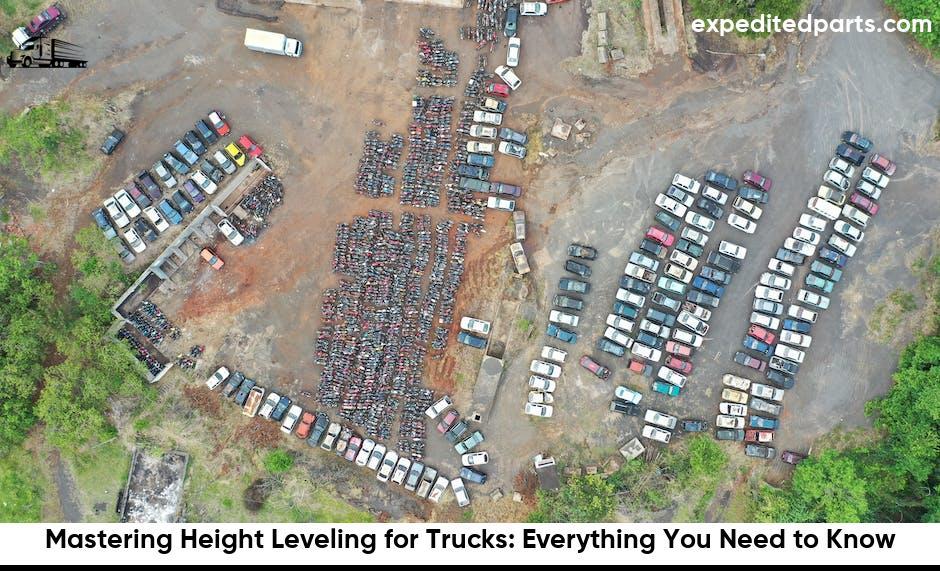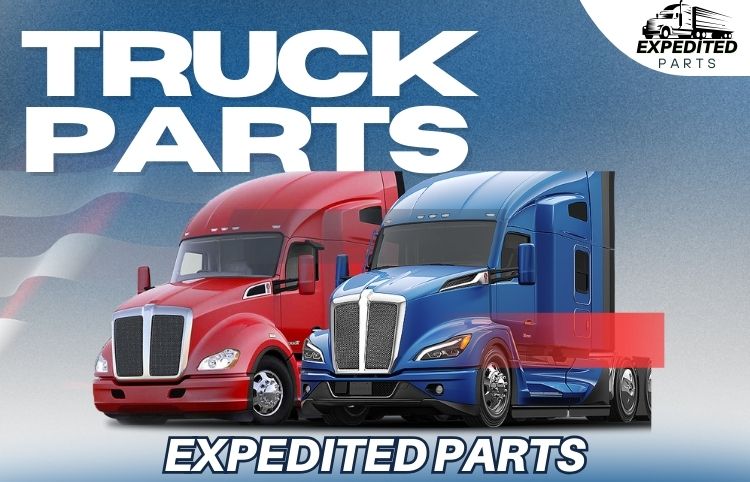Height leveling for trucks just got easier with control valves! Ensure a smooth ride and proper weight distribution without any hassle.
Height leveling control valves for trucks play a crucial role in ensuring optimal vehicle performance and safety. These valves are designed to maintain a consistent height level for trucks, especially when carrying heavy loads. By automatically adjusting the suspension system, they help to distribute weight evenly, minimizing the risk of tire wear, instability, and uneven braking. Height leveling control valves also enhance the overall driving experience by improving handling, stability, and maneuverability. Whether it’s a commercial truck or a recreational vehicle, these control valves provide a reliable solution to maintain a balanced and controlled ride, regardless of the load or road conditions.

Mastering Height Leveling for Trucks: Everything You Need to Know
Mastering Height Leveling for Trucks: Everything You Need to Know
- Benefits of Height Leveling:
- Improved handling and stability
- Enhanced weight distribution
- Reduced tire wear
- Minimized strain on suspension components
- Improved fuel efficiency
- Components involved in Height Leveling:
- Suspension system
- Leveling kits
- Lift kits
- Control arms
- Adjustable air suspension
- Methods for Height Leveling:
- Torsion bar adjustment
- Coil spring replacement
- Air bag installation
- Considerations for Height Leveling:
- Load carrying capacity
- Legal restrictions and regulations
- Safety precautions
- Professional installation
Achieving Truck Control Perfection: A Guide to Height Leveling and Control Valves
Achieving Truck Control Perfection: A Guide to Height Leveling and Control Valves
In this comprehensive guide, we will delve into the world of height leveling and control valves for trucks. Achieving truck control perfection requires a deep understanding of these fundamental components and their role in maintaining stability and performance.
- Importance of Height Leveling:
- Enhanced steering response
- Improved handling on various terrains
- Reduced body roll and sway
- Optimized load distribution
- Function of Control Valves:
- Regulating air pressure in the suspension system
- Adjusting ride height based on load conditions
- Controlling the damping characteristics
- Managing weight distribution
- Types of Control Valves:
- Manual control valves
- Automatic control valves
- Electronic control valves
- Proportional control valves
- Installation and Maintenance:
- Proper installation techniques
- Regular inspection and adjustment
- Replacing worn components
- Upgrading to advanced control valve systems
The Ultimate Height Leveling Solution for Trucks: Control Valve Strategies Revealed
In the world of trucking, maintaining proper height leveling is crucial for optimal performance and safety. One of the key components that enable height leveling is the control valve. Control valves play a vital role in regulating the flow of fluids and gases within a truck’s suspension system, allowing for precise adjustments in height.
- Precision Control: The control valve should provide precise and responsive control over the truck’s height. This ensures that the truck can be leveled accurately, even in delicate or challenging situations.
- Adaptive Algorithms: An advanced control valve system utilizes adaptive algorithms to automatically adjust the vehicle’s height based on real-time conditions. This allows for improved stability and handling, especially when encountering uneven terrain or road obstacles.
- Proportional Control: A control valve that offers proportional control allows for fine-tuning of the truck’s height in small increments. This level of control is essential for achieving the perfect balance and ride comfort.
- Advanced Sensors: To accurately measure the vehicle’s height and adjust the control valve accordingly, advanced sensors are employed. These sensors detect changes in height and provide precise data to the control valve system.
By combining these control valve strategies, the ultimate height leveling solution for trucks ensures a smooth and safe ride, enhanced maneuverability, and improved load distribution. When choosing a height leveling system, it is essential to prioritize control valve strategies that offer precision, adaptability, proportional control, and advanced sensor technology.
:
Unleash the Power of Height Leveling: How Control Valves are Changing the Trucking Game
- Automated Height Adjustment: Control valves enable automated height adjustment, eliminating the need for manual intervention. With advanced control valve systems, trucks can automatically adapt to changing load conditions, road conditions, and terrain, ensuring optimal height and stability at all times.
- Real-time Monitoring and Adjustment: Modern control valve technology allows for real-time monitoring and adjustment of the truck’s height. This means that any deviations or imbalances can be detected promptly, and the control valve can make immediate corrections to maintain stability and safety.
Height Leveling Secrets Unveiled: The Role of Control Valves in Truck Performance
In the world of truck performance, height leveling plays a crucial role in ensuring optimal stability and control. And at the heart of this process are control valves, the unsung heroes of truck performance. Control valves are responsible for regulating the airflow and pressure in the truck’s suspension system, allowing for precise control over the vehicle’s height.
Here are some secrets unveiled about the role of control valves in height leveling:
- Improved Handling: Control valves enable the truck to maintain a balanced and level stance, reducing body roll and enhancing cornering ability. This leads to improved handling and overall stability, especially during sharp turns or uneven road surfaces.
- Enhanced Comfort: By adjusting the height of the vehicle, control valves help in achieving the desired ride height, thereby improving the comfort level for the driver and passengers. Whether it’s a smooth highway or rugged terrain, control valves ensure a comfortable ride by absorbing the shocks and vibrations.
- Safety Measures: Control valves play a crucial role in ensuring safety by keeping the truck’s chassis level and stable. This reduces the risk of rollovers and improves braking performance, allowing for better control in emergency situations.
Conclusion
Level Up Your Truck’s Performance: The Importance of Control Valves in Height Leveling
Here’s why control valves play a pivotal role in height leveling:
- Improved Stability: Control valves ensure that your truck maintains a level stance, minimizing body roll and improving stability during turns or when driving on uneven terrain. This translates to enhanced handling and overall driving confidence.
- Efficient Load Management: Control valves automatically adjust the truck’s height based on the load being carried, optimizing ground clearance and preventing unnecessary strain on the suspension system. This not only improves fuel efficiency but also prolongs the lifespan of your truck’s components.
- Safety First: Control valves play a vital role in maintaining a level chassis, reducing the risk of rollovers and enhancing braking performance. This ensures better control and maneuverability, particularly in emergency situations.


